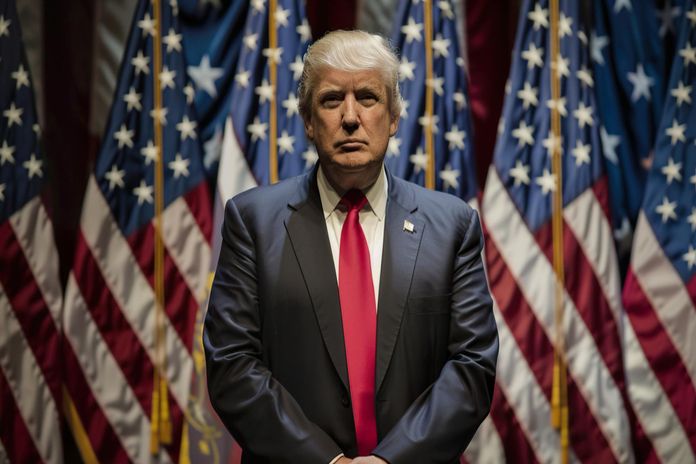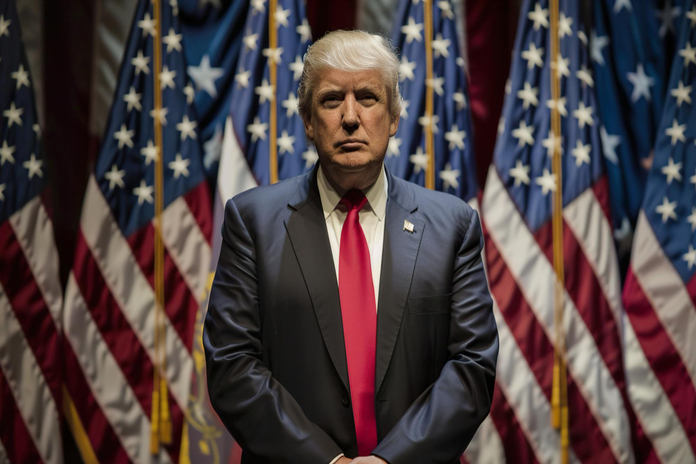Citigroup Crypto Custody Plans Gain Momentum

Citigroup Inc. (NYSE:C), one of the largest U.S. banks with approximately $2.5 trillion in assets under management, is reportedly preparing to enter the digital asset space with crypto custody services. This move would position the bank alongside major industry players like Coinbase Global Inc. (NASDAQ:COIN) in safeguarding digital assets for institutional clients. The initiative is bolstered by regulatory clarity under the Donald Trump administration, which has encouraged traditional financial institutions to explore blockchain-based offerings.
Stablecoin and ETF Custody in Focus
According to a Reuters report, Biswarup Chatterjee, Citigroup’s global head of partnerships and innovation for the services division, confirmed that the bank is evaluating the potential to provide custody services for stablecoins backed by high-quality reserves. This would ensure secure storage of the assets that underpin these digital tokens, a critical factor for institutional adoption.
Citigroup is also exploring custody services for cryptocurrency exchange-traded funds (ETFs), including those tracking Bitcoin and Ethereum. The strategy mirrors the role Coinbase currently plays as custodian for roughly 80% of U.S.-listed crypto ETFs. Notably, BlackRock Inc.’s (NYSE:BLK) iShares Bitcoin Trust (IBIT), the largest Bitcoin ETF, manages over $90 billion in assets, requiring an equivalent amount of digital currency to be held in secure custody.
If Citigroup enters this market, it could become a key custodian for a growing number of digital asset investment products, adding a significant layer of credibility for institutional investors still cautious about crypto.
Stablecoins for Faster Payments
Citigroup crypto custody ambitions are tied closely to the bank’s broader interest in stablecoins. The bank is assessing how stablecoins can accelerate payment processing compared to traditional banking rails, which often take multiple days to settle transactions.
In earlier reports, Citigroup was said to be considering launching its own stablecoin—similar to JPMorgan Chase & Co.’s (NYSE:JPM) JPM Coin and initiatives from Bank of America Corp. (NYSE:BAC). The bank already offers tokenized U.S. dollar payments, enabling instant transfers between accounts worldwide via blockchain.
Chatterjee explained that upcoming services could allow clients to send stablecoins between accounts or instantly convert them into fiat currency for real-time payments. This could significantly improve cross-border transaction efficiency and reduce reliance on outdated settlement systems.
Compliance and Security Considerations
Citigroup has emphasized that compliance and operational security will be top priorities in any crypto custody offering. Before accepting assets, the bank intends to verify their legitimacy and ensure they have not been involved in illicit activity. Cybersecurity measures will also be strengthened to protect against theft and unauthorized access, a critical step in building trust with institutional clients.
This focus mirrors recent moves by other banking giants. Ripple Labs’ partnership with BNY Mellon (NYSE:BK) will see the latter custody the dollar reserves for Ripple’s RLUSD stablecoin, highlighting how custody services are becoming an integral part of stablecoin ecosystems.
TradFi’s Expanding Role in Digital Assets
Citigroup’s exploration of crypto custody services underscores a broader shift in traditional finance (TradFi). Major institutions like JPMorgan and PNC Financial Services Group Inc. (NYSE:PNC) have already partnered with Coinbase to offer crypto services, while JPMorgan is also planning crypto-backed loans.
For Citigroup, entering the crypto custody space is both a competitive and strategic move. By providing secure storage for stablecoins and crypto ETFs, the bank could establish itself as a trusted intermediary for digital assets—bridging the gap between blockchain innovation and mainstream finance.
Bottom Line
Citigroup crypto custody plans signal a major step toward mainstream adoption of blockchain-based financial products. By combining its global banking infrastructure with cutting-edge digital asset services, Citigroup aims to compete with established crypto custodians while offering faster, blockchain-enabled payment solutions. However, success will depend on navigating regulatory requirements, ensuring robust security, and convincing cautious institutions to embrace digital asset integration.
Featured Image: Freepik






